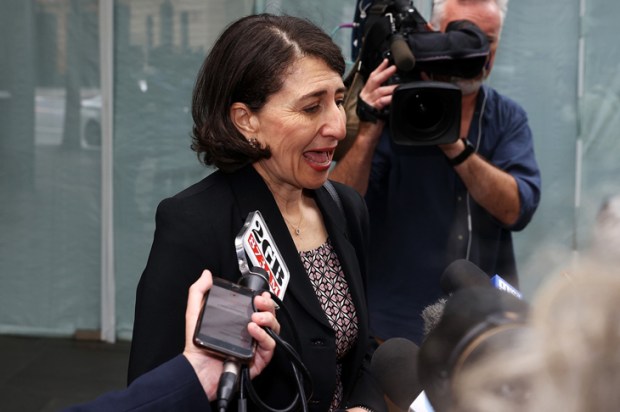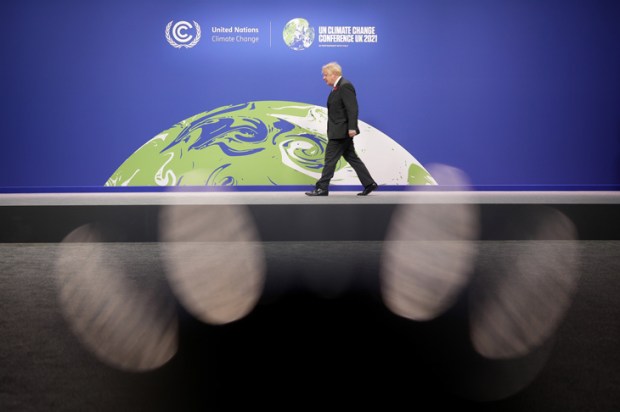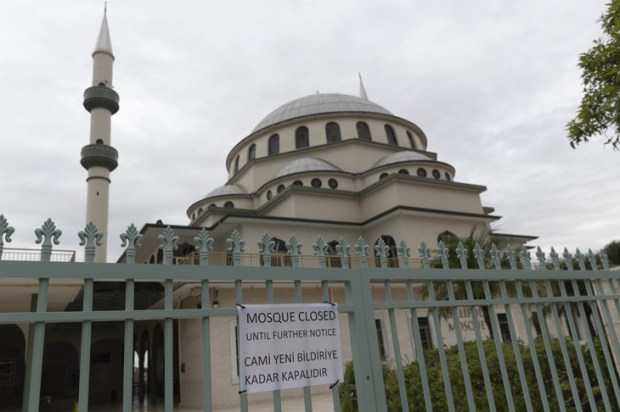What is it about Q&A? People who despise the show feel compelled to watch it every Monday night. It has become compulsory viewing for media masochists, a self-flagellation hour for political tragics. Perhaps Johno Johnson’s use of Opus Dei to stack Labor party branches has gone further than I thought.
I’ve been asked to appear but I had to tell Lindsay Olney, one of the show’s producers, that I would rather spend time in a dentist’s chair than swapping bons mots with the luvvies of the inner-city Left. Appearing or watching, I was
a no-show.
Where others might have wilted, I remained resolute. Months passed, years ticked by, each of them sans
Q&A. But then two Mondays ago, I felt the lash for the first time. It started innocently enough, channel surfing, as one does after TVN’s Champions of Racing has ended.
The first tickle across my back came with the sight of a polymesmeric panellist, a man of mistaken identity.
He was wearing a black shirt and a white tie, a combination not seen in these parts since the last of the Godfather movies screened in Western Sydney. Yet his accent, far from Sicilian, was fruity, of a plum variety, more BBC
than ABC.
As his subject matter became clear — a tortured defence of the Murdoch phone-hacking and bribery scandals — I found myself flogging harder. The Sicilian Brit was talking about people like me. ‘A motley crew,’ he opined.
Our sin, apparently, was to celebrate the end of the News of the World, to rejoice at Murdoch’s woes as if we were watching a rerun of the Return of the Jedi. To this I can only plead guilty. Another evil, decaying empire had been put to the sword. These days Rupert even looks like Darth Sidious.
Why wouldn’t we be celebrating? Criminals who bribed police officers and hacked into the voicemail of murder victims have been caught. By any interpretation of the rule of law, justice is being done. For decades, the Murdoch press in Australia has been calling for a tougher approach to crime. This standard can now be applied to their colleagues in London, many of whom are likely to spend time in jail.
More importantly, an organisation which has developed a reckless culture of ‘whatever it takes’ has been taught
a crucial lesson. Privacy matters. No matter one’s standing in society, a basic right of citizenship is the capacity to enjoy the quiet pleasures of a private life.
Individual rights are breached whenever media companies stake out homes, eavesdrop on private conversations or spy on people as they go about their daily lives. Regrettably, in most newsrooms, not just at News Limited but also its competitors, here and abroad, these techniques have become the standard tools of a discredited trade.
I celebrate Murdoch’s discomfort in the hope that the era of privacy violation might now end. The phone-hacking arrests are a victory for personal liberty, for the freedom of the individual to make phone calls, to send emails, to engage in the regular communications of the 21st century without media houses hacking into their records.
•••
One would have thought, après-scandal, that these principles would be universally accepted. On Q&A, however, the panel had to respond to a character not yet contrite about the recent atrocities. The British blackshirt insisted that journalists need to ‘bend the law in order to get a story’.
This is undoubtedly what Rebekah Brooks’s people thought they were doing. When an organisation accumulates power, wining and dining prime ministers, altering public opinion on issues of national importance, it also accumulates arrogance. Anyone who has had dealings with the senior players at News Limited would recognise this ‘master of the universe’ syndrome. They take a proprietorial view of the political system, expecting to not only know members of parliament but to own part of them.
When asked about the role of the state, it is said that Louis XIV replied, ‘The state? I am the state.’ Likewise, when the News of the World set about bending and then breaking the law, it mimicked the Sun King’s mantra. It saw its privileged position in society as an exemption ticket from the laws of the land. Absolute power corrupted absolutely.
With some help from Google, the blackshirt turned out to be Brendan O’Neill — a so-called libertarian, in Australia visiting the right-wing talk-tank the Centre for Independent Studies. I say ‘so-called’ because O’Neill’s idea of liberty is restricted to the role of government. He is what I call a half-libertarian. No matter the issue, no matter the evidence of breaches of freedom by the private sector, O’Neill’s only concern is with the state.
This is a classic confusion of means and ends, a tunnel vision by which serious encroachments on liberty
by non-government bodies are rationalised away. News has broken the law, but in O’Neill-land, the real villains are politicians proposing stronger privacy provisions to protect their citizens.
So, too, the CIS has been silent on questions of privacy. With the development of advanced information technologies, this is the most important libertarian issue facing Western society. It is a measure of the CIS’s impotence that Bob Brown and the Greens have taken a stronger stance.
Back at the show, as Tony Jones signed off ‘until next Monday’, the self-flagellation also ended. The real flogger that night had been Brendan O’Neill.
The post Latham’s law appeared first on The Spectator.
Got something to add? Join the discussion and comment below.
Get 10 issues for just $10
Subscribe to The Spectator Australia today for the next 10 magazine issues, plus full online access, for just $10.














Comments
Don't miss out
Join the conversation with other Spectator Australia readers. Subscribe to leave a comment.
SUBSCRIBEAlready a subscriber? Log in